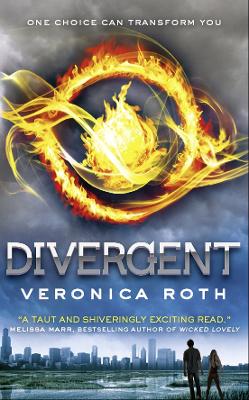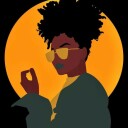
She turns to the future in a world that’s falling apart.
The No. 1 New York Times bestseller DIVERGENT – also a major motion picture.
For sixteen-year-old Tris, the world changes in a heartbeat when she is forced to make a terrible choice. Turning her back on her family, Tris ventures out, alone, determined to find out where she truly belongs.
Shocked by the brutality of her new life, Tris can trust no one. And yet she is drawn to a boy who seems to both threaten and protect her. The hardest choices may yet lie ahead….
The first book in the DIVERGENT series that has swept the globe – selling millions of copies world-wide.
- ISBN13 9780007420414
- Publish Date 3 May 2011 (first published 1 May 2011)
- Publish Status Out of Print
- Out of Print 15 February 2013
- Publish Country GB
- Publisher HarperCollins Publishers Inc
- Imprint HarperCollins
- Format Paperback
- Pages 496
- Language English
- URL http://harpercollins.co.uk
Reviews

Written on Nov 21, 2019

thepunktheory
Written on Jan 14, 2018
The Divergent series was one of the big YA hits of the last years, but I didn't enjoy it exactly as much as apparently everybody else.
To be honest, I didn't like any of the characters. Most of the time Tris is an annoying brat - either complaining or whining. Four is quite stereotypical and the whole love-story between them is absolutely unnecessary.
You get the picture, it's definitely not my favorite book.

maggiefan
Written on Dec 17, 2017
P. S. Yeah, I admit, this book has a lot of plot holes and stupid things in it, but... Oh god, how refreshing it was to read about a romance (sometimes VERY stupid) and not about A FREAKING LOVE TRIANGLE AGAIN.

sstaley
Written on Nov 10, 2016
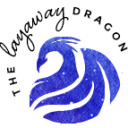
layawaydragon
Written on Feb 26, 2016
Though I did like the bit with Tris and her mom. And the violence, it was interesting though the deaths are shrugged off like red shirts.
Tris is definitely a special snowflake that is annoying and fall insta-love with her teacher. I like Four's type but he's bland. Then he ends up being a special snowflake too. *sigh*
But everything else is just like why? And how the hell did we end up here? And what about the rest of the US and the world? Are there factions all over the country that have to report to higher ups? Or is Chicago it's own special sort of hell? Did they kill off all the minorities in Chicago before or after dissolving into factions? Did they perform surgery a ala Uglies or genetics tampering or breeding programs or something to make people fall into fractions? Because I really don't see how Tris could be special. It's just the hideous "I'm special and ya'll are sheeple, god" aspect of being a teenager escalated to society wide nonsense.
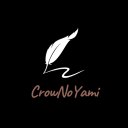
CrowNoYami
Written on Feb 21, 2016
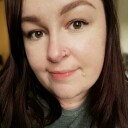
Rinn
Written on Jan 25, 2016
Just a note that this review will contain spoilers for the first book, Divergent. My reviews do not usually contain spoilers, but I really wanted to discuss some of my issues with this one, which cannot be done spoiler-free.
Firstly, I really need to question the whole system of Divergent. Is Chicago the only city left? What happened to the rest of the world? And why oh why did they think a faction system, especially one that relies on every person having one characteristic, help? Surely the fact that people can choose to switch factions only encourages Divergence? And I’m pretty sure everyone in the world would be Divergent. There’s no way that all of those people aren’t brave AND clever AND kind AND selfless AND honest. Does that mean anyone who is not in Candor is dishonest? Surely then their government would be a mess, as it’s run only by Abnegation? And speaking of Abnegation, whose smart idea was it to let just one faction be effectively in charge? Sure, they’re supposed to be ‘selfless’ but if there are Divergents out there then that only means there is a chance of corruption. I’m also pretty sure that being selfless does not equal being a good leader.
I had to sigh when Tris was described as ‘plain’. Of course, of course. Why are basically all YA dystopian heroines plain? And white, and blonde. And then of course the moody ‘bad’ boy with the mysterious past is interested in the ‘plain’ girl, who of course is special and talented. I am so so bored of this kind of romantic trope.
More questions. Why do only half of the Dauntless initiates get to pass? Surely, in this post-apocalyptic/whatever the hell happened world, you would want to keep population numbers fairly stable, and therefore NOT just randomly let people die? And why have the factionless never rebelled? It’s implied that there’s quite a lot of them, and with Dauntless’s elimination system, you’d assume quite a large percentage of them would be ex-Dauntless. And therefore trained to fight, how to use weapons – and probably willing to go down trying to free themselves.
I still don’t quite know how to rate Divergent. Obviously I have a lot of problems with it; so much of the story just doesn’t make any sense. But I also breezed through the book and quite enjoyed it, despite the gaping plot holes and questions. The last 80 pages or so contain so many shocks and twists, and it’s clear that Veronica Roth is not against making some serious decisions in terms of her characters. It’s better than some YA dystopian fiction that I’ve read, but worse than others – sitting somewhere firmly in the middle.

pamela
Written on May 14, 2015
The argument I hear most with novels like this is that because it's YA I am obviously not the target audience, which is probably why I didn't enjoy it. For me, this does not do today's young adults enough credit. Some of the best novels I've read in the last few years have been YA. E Lockhart's We Were Liars immediately springs to mind. In fact, my favourite book of 2014 was Jonathan Stroud's The Screaming Staircase which is written for age 9-12, an even younger readership! Having a young readership does not mean that people outside their age groups can't enjoy them. In fact, I'd go so far as to say that appealing to a diverse readership is the mark of a great writer. Something that Veronica Roth is not.
Roth's writing style itself is not terrible. She has a good sense of pace, gets her descriptions pretty much down so you know what's going on but don't get bogged down with and excess of descriptive prose. She even has a decent sense of excitement and adventure. I wasn't bored reading Divergent, let's put it that way. Where this book really struggled for me to give it any more than two stars is that the entire basic premise for the entire bloody plot just made no goddamn sense! And I mean that in the sense of it just doesn't work! These so-called 'Divergents' are meant to be super special because they have a normal range of human emotion? Someone in the wake of some form of (I assume?) nuclear catastrophe came up with an idea that meant segregating the entire populace of a city in to dominant personality traits (because apparently that's a thing?) as a means of promoting peace. A committee of people sat around and thought that was reasonable, and then implemented it, and didn't think that segregation and the stifling of a human range of emotions would perhaps have the opposite of the desired effect? If we're living in the past of Divergent's alternate future then we need only see the rise of fundamentalism and the violent outpourings caused by that to see how completely ludicrous an idea that is. The person who had suggested that idea would have been laughed out of the room. And then fired.
Roth writes a world that is too black and white, with everything pigeonholed to perfection. I see that essentially that's the point she's trying to make, but all I see when I read Tris' character is not a girl who is 'Divergent', but an ordinary teenager trying to find her place in the world. Divergent's aren't special or abnormal, they're just normal fucking people. There is no deeper knowledge to be gained here, because the world created is so unbelievably unrealistic; a pastiche of sci-fi and fantasy tropes used to represent the human condition, but represented in the blandest possible packaging.

Joséphine
Written on Apr 30, 2015
August 3, 2013 — 5 stars
April 30, 2015 — 4 stars
Thoughts upon rereading: The first time round I read Divergent in 2013, I devoured it. I loved it to bits. For most of my teen years I read contemporary fiction and to finally delve more into science fiction, specifically dystopian fiction, was exhilarating. Since then I've read more dystopian books, some of which impressed me more and some less. Also, this time round I tabbed the pages with post-it notes, annotated and cross-referenced. This close reading forced me to be more critical (in the analytical sense) as I read.
I was amazed how some moments in the beginning chapters were shadows of what was to come. I saw this as a strength of the overarching narrative. I found two inconsistencies but compared to the many subtle moments that were linked, I figured they didn't matter that much. The characters were well-developed and distinctive, even though each faction's members were supposed to be more similar than different.
What made me a little sad was that I felt much more disconnected from Tris as the first-person narrator as opposed to when I read Divergent the very first time and absolutely adored Tris. Either way, she's a great protagonist who shows strength, weakness, dominance, submission, and basically the complexity you'd expect from someone whose story you're reading.
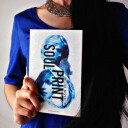
ammaarah
Written on Jan 24, 2015
Beatrice Prior, the main character, lives in a society that maintains peace by separating its 16 year old citizens into a faction based on the virtues that they have. There are five factions: Abnegation (selflessness), Amity (peace), Candor (honesty), Dauntless (bravery) and Erudite (knowledge). When an aptitude test is taken, Beatrice's result are inconclusive and she decides to leave Abnegation and join Dauntless.
Beatrice (Tris) was an amazing and REAL main character. She's likable, smart and her thoughts and emotions are easy to understand. I loved the manner at which she developed throughout Divergent, physically and emotionally. At the beginning, she isn't good at everything (unlike most characters, who fight a battle for the first time, don't even know a basic self-defence mechanism and wins), but she gradually and slowly learns how to be the best that she can be.
The secondary characters were well developed. I loved hating the villains and rooting for the heroes. Tris's relationship with her mother and family was beautiful. Christina was such a fun best friend and Four was dreamy. I loved the chemistry that he had with Tris and it was amazing to see the way in which their attraction progressed into a relationship that I was rooting for.
Divergent has a whole load of Dystopian aspects to it, but Roth was able to make the cliche' parts seem original. The whole logic that this book is build on, was simple, but effective. Veronica Roth has an amazing imagination that she used to form Tris's tests and trails and her fight scenes were realistic and easy to visualize.
I'm really glad that I gave this book a chance and I can't wait to get my hands on Insurgent to find out where Tris's journey takes her. If there was one word that I could use to describe to describe this dystopian novel, it would be REAL.
